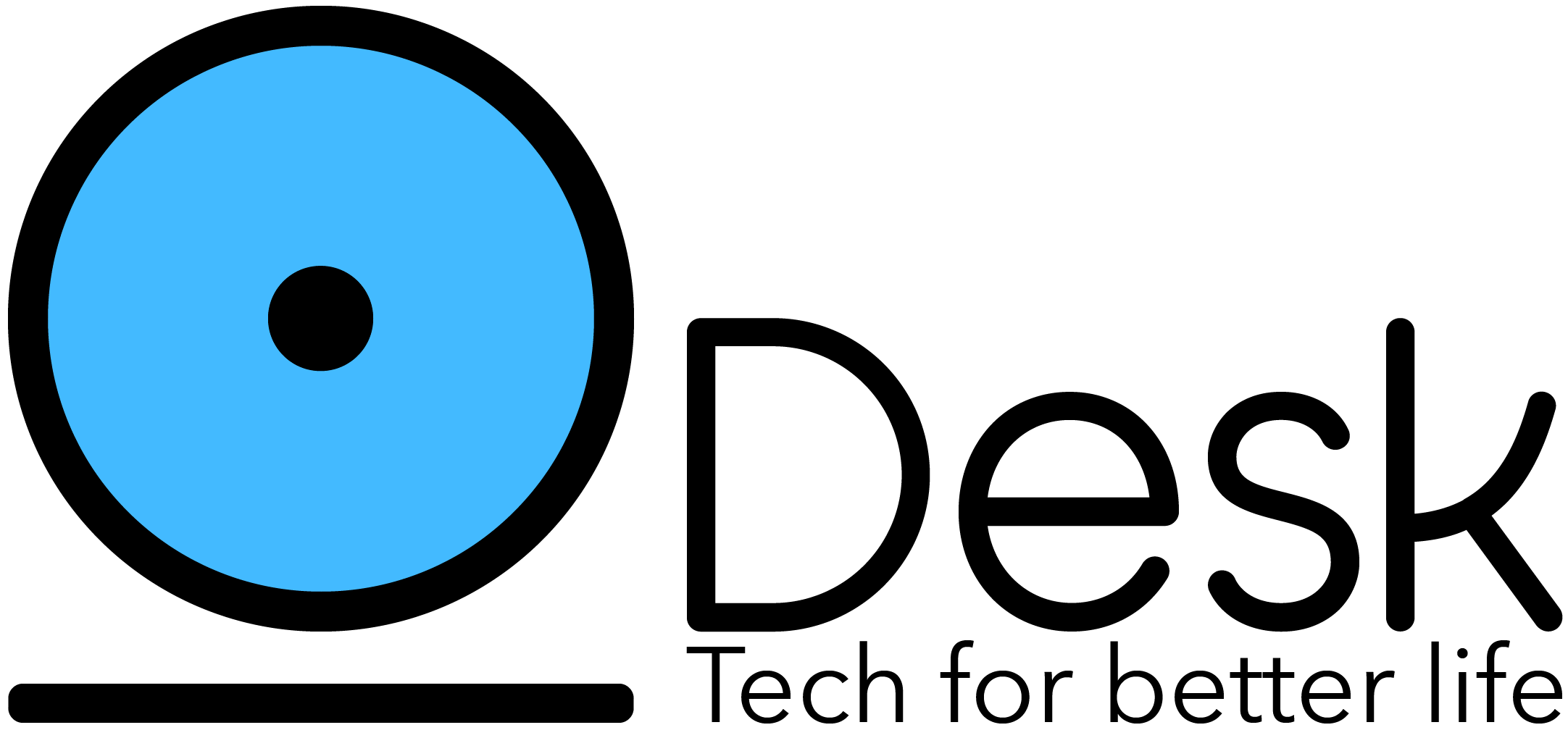Top 8 eCommerce app development platforms to sell online
E-commerce is quietly and conveniently taking over our lives. Everything from clothing, groceries, electronics, and cars can be purchased online. This change was only amplified during the pandemic when more and more businesses and consumers shifted online keeping safety in mind. It is now very important for businesses to build a solid virtual presence in order to connect with the much larger consumer base out there.
To understand how exponential the rise of e-commerce has been, let’s look at numbers. In 2019, retail e-commerce sales worldwide amounted to 3.53 trillion US dollars and e-retail revenues are projected to grow to 6.54 trillion US dollars in 2022. Infact, according to reports, by the year 2021, worldwide retail e-commerce sales will reach up to $4.9 trillion.
With this increasing demand for e-commerce, it becomes essential to choose a platform that would best suit your business. The correct e-commerce platform could single handedly be a game changer for your entire online presence and sales. Before we understand the various e-commerce platforms that can be considered, it is essential to keep in mind certain aspects and expectations that come from an online shopping website:
- User friendly
- Easy backend and content management
- Email marketing integration
- Wish lists
- Mobile friendly
- Easy-to-use checkout
- Easy payment options and integration
While these are only a few features, it is of utmost importance to remember to pick what suits your business the most. Seems like a daunting task? Don’t worry, we’re here to help. Here are some of the best e-commerce development platforms to consider:
Shopify
Started in 2004, Shopify is now one of the leading e-commerce solutions in the market with over 1 million businesses across 175 countries.
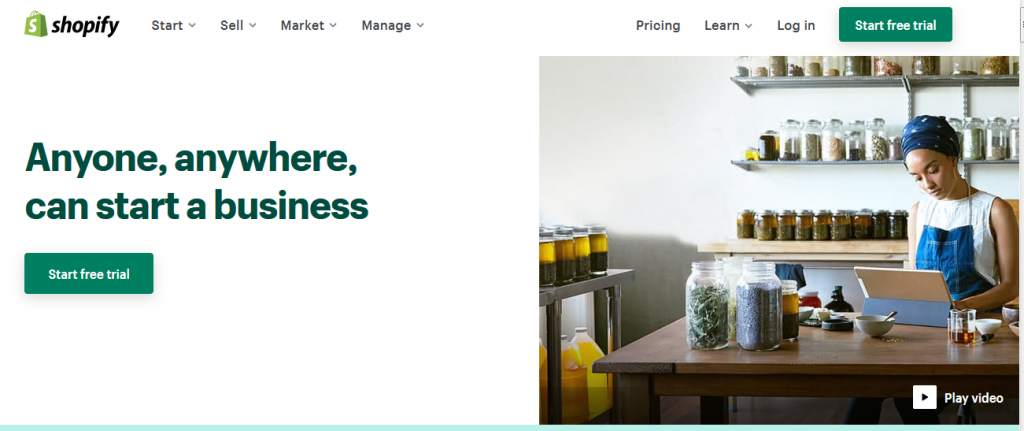
Shopify’s retailers cover a spectrum of sizes and industries. Everything you need is already integrated into the platform: from content marketing to storefront design to performance analytics. Once you have the basic setup, it’s simple to upgrade your store with some third-party extensions–or even change the shop’s code itself. Site building features:
- Unlimited product listings
- Custom domains
- Real-time sales statistics
- Inventory tracking
- AI/Personalization
- Over 70 themes/templates available
- Technical support through phone, email, live chat, documentation, video tutorials, webinars, and a community forum.
- Dashboard
- Product Reports
- Export Reports
- Google Analytics
- Traffic/Referral Reports
BigCommerce
Founded in 2009, it provides businesses sophisticated enterprise-grade customization, functionality, along with brilliant performance with ease-of-use. Thousands of B2C and B2B companies and enterprises across 150 countries and various industries use this platform to create online storefronts for their businesses.
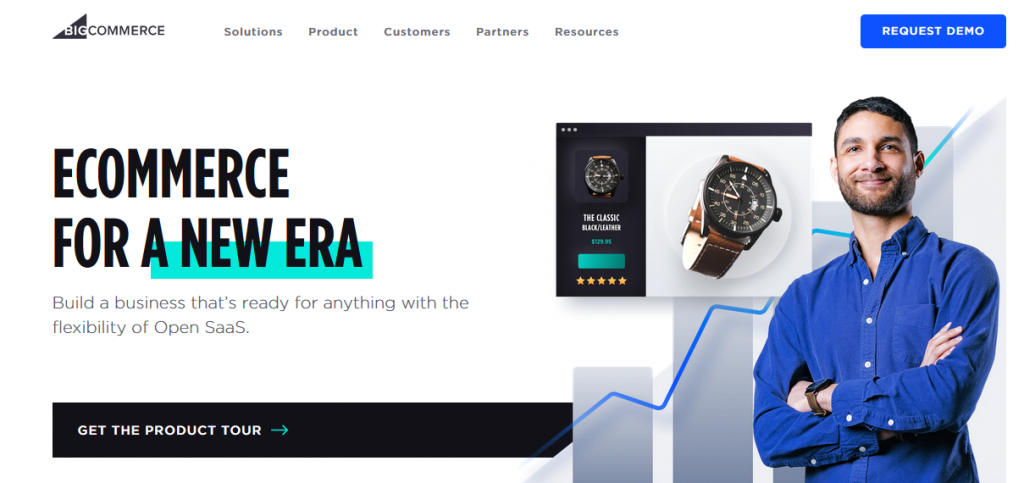
BigCommerce is an excellent e-commerce platform to use for beginners. In terms of usability, it compares well to its competitor Shopify, except that BigCommerce has more features out of the box so the learning curve is slightly higher. It also makes it easy to edit and modify SEO-related features like page titles and custom URLs. But the feature that sets it apart is its ability to sell in multiple currencies, which Shopify and other platforms lack. In order to build unique shopping experiences, BigCommerce supports a range of CMS’s, Headless Commerce capabilities,and DXP’s. Site Building Features:
- Dashboard
- Product Reports
- Export Reports
- Google Analytics
- Traffic/Referral Reports
- Additional app integration customizations available
Magento
Magento is one of the most used open-source e-commerce platforms globally. It was originally released in 2009 and then replaced by Magento 2.0 in 2015 with an improved code base and more stability/usability features. Later, it was then purchased by Adobe in 2018, and now exists in two versions: Magento Open Source and Magento Commerce.
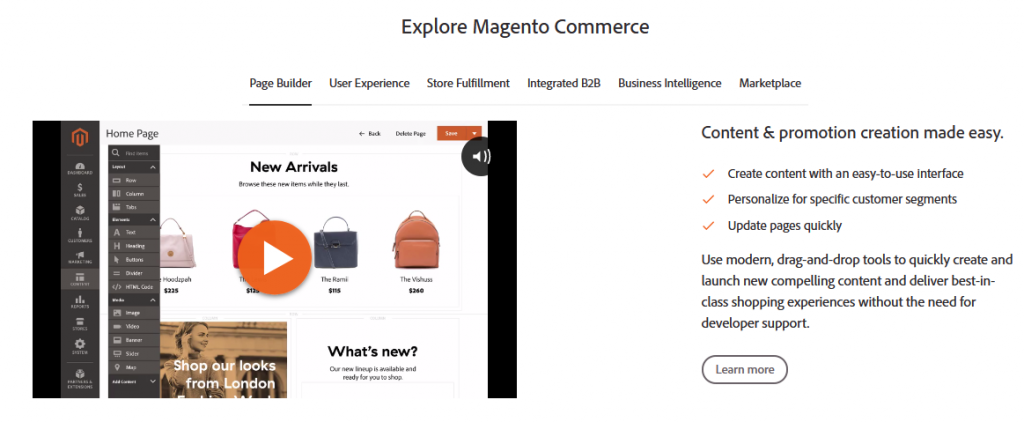
Magento is best for small-to-medium businesses that have already established demand, time, manpower, and skill to build their own site. It is a very powerful platform and boasts of a library of over 5,000 extensions. However, it requires a longer development time and a larger budget than most of its competitors. Site Building Features:
- Integrated payment, checkout, and shipping
- Mobile-optimized shopping
- Global selling
- Catalog management
- Extended Functionality via App marketplace
- Instant purchase
- Site search
- Customization options available
- Analytics
WooCommerce
WooCommerce is a free, open-source shopping cart plugin owned and developed by WordPress. Running on 30% of all stores on the internet, It is one of the most popular e-commerce options on the market.
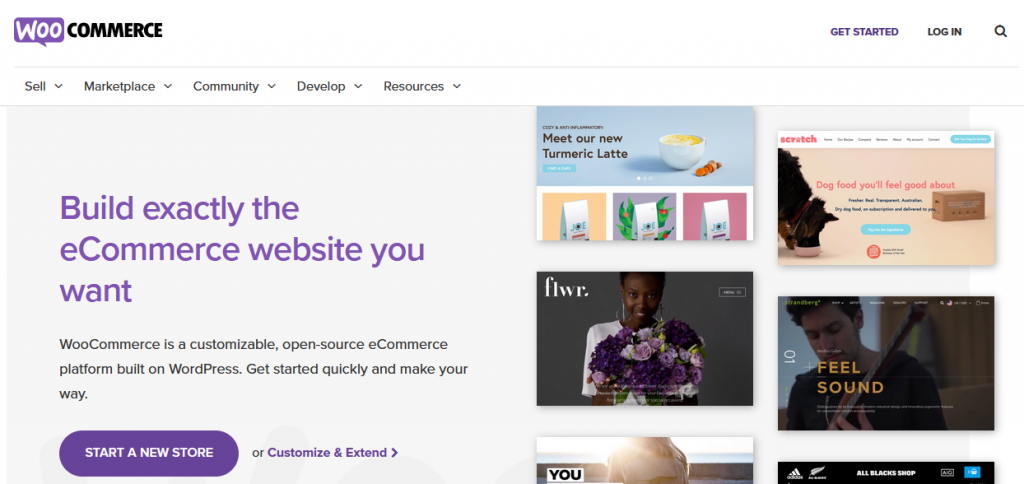
WooCommerce is the best for small businesses that already have a site on WordPress or those who want to function on smaller budgets however still want a robust online store. It has thousands of third-party plugins and themes thus giving it a great deal of flexibility to accommodate most requirements. Site Building Features:
- Mobile-optimized shopping
- Geo-location support
- Catalog management
- Inventory management
- Shipping options and calculator
- Search engine optimization
- Coupons and discounts
- Product reviews
- Google Analytics integration
Similar to majority open-source e-commerce platforms, there is a steep learning curve attached with WooCommerce. Although its plugin is relatively straightforward to set up and install, users have to develop their own expertise using community forums and online help guides.
Squarespace
Squarespace provides drag-and-drop functionality and pre-built website templates to create their web pages. Squarespace is best for entrepreneurs and small business owners with basic e-commerce needs. The e-commerce platform is effective, but only as a partner to the main website builder. Businesses in need of more advanced online space or those that handle a large amount of inventory would be better off with more dedicated platforms.

Site Building Features:
- Abandon cart auto-recovery
- Digital products
- Personalized products
- Product import/export
- Real-time shipping rates and tracking
- SEO tools
- Upselling and cross-selling
- Gift cards
- Automatic discounts
- Limited integration options
SquareSpace has one of the easiest design interfaces in the market. It’s quite simple to assemble and modify your eCommerce platform no matter your experience level. However, there aren’t many add-ons available in the default builder, and there is no app store for third-party extensions which will limit the functionality of your eCommerce site.
Wix
Wix.com is a cloud-based website builder where users can create online stores through drag-and-drop tools. It is easy for beginners and resource-strapped business owners to build a compelling and functional website through an extensive range of templates and designs.
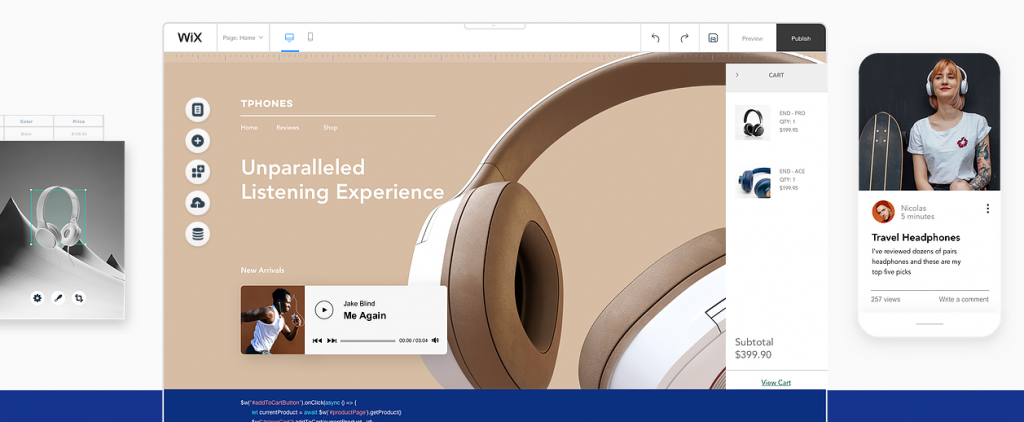
Even though its plugins can help extend the functionality, businesses with deep or complex product lines may be better off with a dedicated e-commerce platform. Site Building Features:
- Digital products
- Product galleries
- Shipping options
- Discount codes
- Inventory management
- Abandoned cart recovery
- Mobile-optimized
- Payment options
- Other functionalities available via extensions
- Google Analytics integration
- In-app analytics
Wix.com’s e-commerce functionality has most of what any business would require but it doesn’t scale as well as dedicated platforms like Shopify or Magento.
Big Cartel
Big Cartel is an e-commerce platform by artists, for artists. This SaaS site builder primarily focuses on creators who need a place to sell clothing, jewelry, artworks,photo prints. They are a platform that knows their niche and the builder itself is simple and uncomplicated and helps artists put their best foot forward.
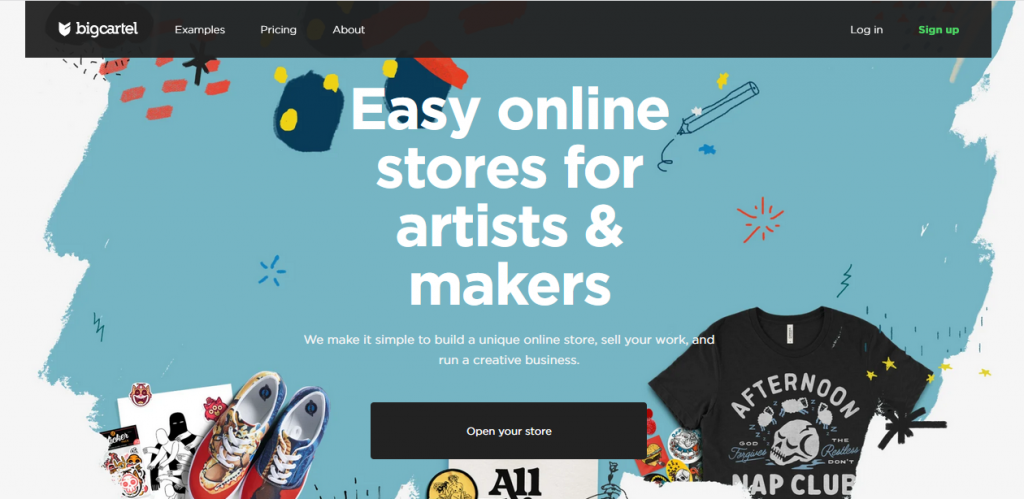
Site Building Features:
- Dashboard
- Product options with different price points
- Multiple selling channels
- Online checkout
- Limited tax calculation
- Inventory management
- Discount codes
- SEO tools
- Plugins available
- Email support
- Social media support
- Recorded webinars
Big Cartel is very easy to manage. Its setup wizard does an amazing job of guiding you. With the help of this platform, you can get faster than sites like Shopify. However, Big Cartel has a very limited feature set and isn’t the right choice for businesses that sell a large volume of products.
Salesforce Commerce Cloud (Demandware)
Salesforce Commerce Cloud, which was formerly known as DemandWare, is an enterprise-level e-commerce platform that offers a complete range of capabilities and features that make it an excellent choice for multi-national companies that process millions of dollars in orders.
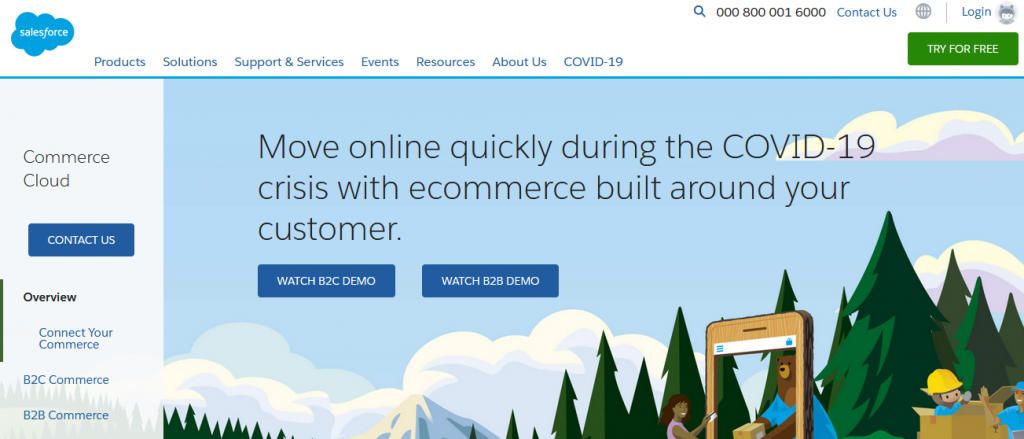
It is the best e-commerce platform for enterprise companies with complex needs. It’s a complicated but highly functional platform that has enough customizations to cover practically any business application, whether B2B or B2C. Site Building Features:
- Product and catalog management
- Marketing and advertising tools
- Customer segmentation
- Site search
- Guided navigation
- AI personalization
- Social media integration
- Global scale
- Responsive design
- One-touch mobile payments
- Multiple channels and retail locations
- Customer targeting
- A/B split testing
- Commerce Cloud Endless Aisle
- Full development platform including API support
As an enterprise-level e-commerce solution, Salesforce Commerce Support cloud offers depth and flexibility that most other platforms can’t match. It brings to the table a very steep learning curve that is best handled by experienced programmers, hired consultants, or by Salesforce developers themselves.
How can TechAhead help
TechAhead, renowned as one of the top mobile app development companies, has over 11 years of experience serving fortune 500 clients to high growth enterprises. The company has proven expertise in the Internet of Things (IoT), and other emerging technologies and their integration with mobile apps and e-commerce. Our team is adept in all major e-commerce platforms and website development on the same. We understand the significance of each website and app we develop and work to make it a success.
TechAhead has vast technical and design expertise in not just developing websites and apps but also understanding the operational requirements. We assist you with your entire development journey. Get in touch with us and we will create an exceptional website for you which is scalable, and robust and relevant.
Source: hackr
